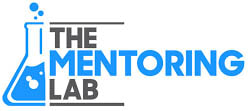|
https://www.tmlcommunity.com/blog
 Youth mentoring has long been recognised as a powerful tool for promoting positive youth development and helping young people reach their full potential. However, as the field has grown and evolved, so too has the need for a clear and comprehensive set of standards to guide the work of youth mentoring organisations and practitioners. The Mentoring Lab's Youth Mentoring in Practice Standards and Framework is a detailed and evidence-based set of guidelines designed to support the delivery of high-quality mentoring sessions to young people. Developed through extensive research and consultation with youth mentoring experts in the field and the youth mentee's they have served, this framework provides a roadmap for youth mentors looking to create, enhance, or evaluate their youth mentoring sessions. At The Mentoring Lab we have focused intently on developing these standards, drawing on our years of experience delivering mentoring programmes at a local community level. By practicing these standards ourselves and demonstrating their effectiveness, we aim to share our learning and best practices with the wider youth mentoring sector across the UK. The Youth Mentoring in Practice Standards and Framework covers the delivery of youth mentoring sessions, from mentor recruitment, training to programme management and evaluation. It includes specific guidelines and best practices for both one-to-one and group mentoring, as well as recommendations for ensuring the safety, confidentiality, and well-being of all participants. One of the key aims of the framework is to promote consistency and quality across the youth mentoring sector and the way mentoring sessions are delivered. By providing a shared set of standards and expectations, we hope to improve young people's experience in their mentoring session, and across the sector, improve collaboration, learning, and innovation among mentoring organisations and practitioners. We also hope to make it easier for funders, policymakers, and other stakeholders to identify and support high-quality mentoring programmes that are making a real difference in the lives of young people. Another important goal of the framework is to support the professionalisation and recognition of youth mentoring as a distinct and valuable field of practice. By articulating the unique skills, knowledge, and competencies required for effective youth mentoring, we aim to raise the profile and status of this important work and encourage more people to get involved as mentors, programme staff, or supporters. So how can the Youth Mentoring in Practice Standards and Framework be used in practice? Youth Mentors and organisations can access:
We invite all those involved in youth mentoring – whether as practitioners, researchers, funders, or supporters – to join us in embracing and applying these standards in their work. Together, we can build a brighter future for young people and the communities they represent. Elaine Isadora Thomas, Founder Ceo, The Mentoring Lab
0 Comments
Your comment will be posted after it is approved.
Leave a Reply. |
AuthorElaine Isadora Thomas is the Founder and CEO of The Mentoring Lab. Raised by the Windrush community of St. Albans, Hertfordshire, Elaine is a trailblazer within the youth sector, championing equity-led approaches to improve the quality of youth mentoring to address the inequalities and barriers effecting the development and progression of black and marginalised youth. Archives
April 2024
Categories |
|
The Mentoring Lab Community CIC
Rights and Equalities In Newham 478 Barking Road London E13 8QB |
Office Number: 02081588500
Office mobile/whatsapp: 07412640174
|
Registered Community Interest Company Number 12269937
Website designed with the help of our Youth leaders
Website designed with the help of our Youth leaders

 RSS Feed
RSS Feed